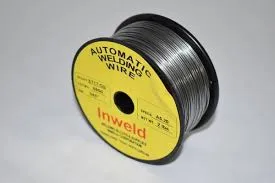electrode for welding mig
Electrode for MIG Welding An Essential Component for Successful Welding Projects
MIG (Metal Inert Gas) welding, also known as Gas Metal Arc Welding (GMAW), is a popular welding technique that uses a continuous feed of electrode wire to create a strong and durable bond between metals. The choice of electrode plays a crucial role in the overall effectiveness and quality of the welding process. Understanding the types of electrodes available and their specific applications can help welders achieve better results in their projects.
Electrode for MIG Welding An Essential Component for Successful Welding Projects
On the other hand, flux-cored wires are designed to be used without the need for external shielding gas, making them ideal for outdoor applications or windy conditions. The core of the wire contains a flux that generates gas when heated, shielding the weld pool from contamination. These electrodes are particularly effective for welding thicker materials and are available in both self-shielded and gas-shielded varieties.
electrode for welding mig

When selecting an electrode for MIG welding, it is essential to consider the material being welded. For instance, mild steel is best suited for ER70S-6 solid wire, while stainless steel requires an appropriate stainless steel wire, such as ER308L. Aluminum welding, on the other hand, typically uses ER4047 or ER5356 wires. Choosing the right electrode not only ensures compatibility with the base material but also impacts the mechanical properties of the weld joint.
In addition to material compatibility, welders should also think about the welding position and the type of joint being created. Different electrodes may perform better in specific positions, such as flat, horizontal, or vertical welding. Furthermore, the type of joint—be it butt, lap, or T-joint—can influence the right choice of electrode.
In conclusion, the electrode is a vital component in MIG welding that significantly affects the quality and integrity of welds. By understanding the various types of electrodes available, welders can make informed decisions that lead to more successful and efficient welding projects. Prioritizing the right electrode, based on factors like material type, thickness, and welding conditions, will ultimately enhance the welding experience and results.
-
Premium 7018 Welding Rods Electrodes for Strong WeldsNewsJul.23,2025
-
E71T-1 Shielding Gas for Gas Shielded Cored Wire Welding SolutionsNewsJul.22,2025
-
Premium Submerged Arc Welding Wire | Efficient Quality SolutionNewsJul.21,2025
-
Premium Solid MIG Welding Wire - Strong, Low-Spatter WeldsNewsJul.21,2025
-
E71T-GS Self-Shielding Welding Wire | Gasless Outdoor UseNewsJul.20,2025
-
E312 Welding Electrode - High Corrosion Resistance & All-Purpose UseNewsJul.20,2025


